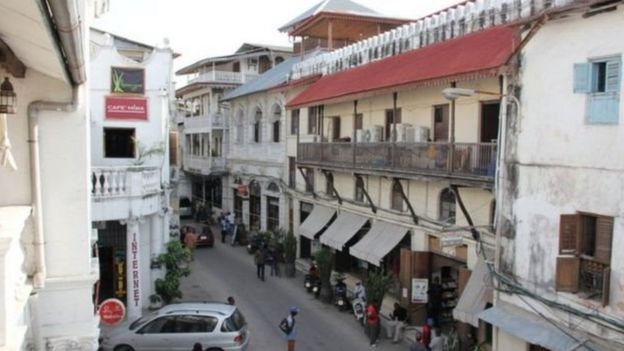Zanzibaris and the use of balls
But in some parts of Zanzibar the use of condoms is not uncommon.
Condoms are not sold in regular stores, something that has grown disillusioned with the activists' association of people living with HIV in the islands.
According to the Zanzibar Ministry of Health, HIV prevalence is less than 1% but in terms of risk groups such as people living with HIV and women who are in the sex trade, the prevalence is still high.
- Police in riot gear stormed a rally on Friday, removing hundreds of protesters by truck
- The CAG report is tabled in Parliament in Tanzania
- India can hold an election of 900 million people
The BBC has identified that the biggest challenge is access to condoms, especially in regular stores.
"It has never happened to me," said one of the women in the sex trade.
"I want a condom but there is no place to get it, I have to get a part of getting it and I have to work on a day like that and I don't work," said the woman.
He added that in Zanzibar if you go to ask for condoms people are very surprised.
He once bought a condom at a regular store but got an answer that left him with a lot of questions
'' Do you want a condom? I'm not selling condoms here, you sister are disrespecting me '', said the woman.
However, there are some residents who say that things have changed these days, not as in the past.

"Currently condoms are available so one cannot have sex arbitrarily without using a condom," another woman told the BBC.
Some young people who work and volunteer in an HIV / Aids community have experienced the effects of condoms.
They say that this is the biggest problem for young people in general.
To a large extent, the Zanzibari community sees condom use as part of sexual harassment.
However, the islands' AIDS Commission plans to come up with a strategy that will help resolve the issue.
"Condoms for us in Zanzibar are a very sensitive issue," said the commission's official, Siaba Saadati.
He says in the community the prevalence rates are low but in special groups they are high.
"Here in the middle we must come up with a way to protect the people," he added. Saadati.
However, he acknowledged that there was a need for them to come up with a strategy that would be in line with the realities of Zanzibari tradition and custom.
In addition to the low HIV prevalence rate in Zanzibar, health stakeholders are still insisting on safe access to condoms in shops and open spaces.